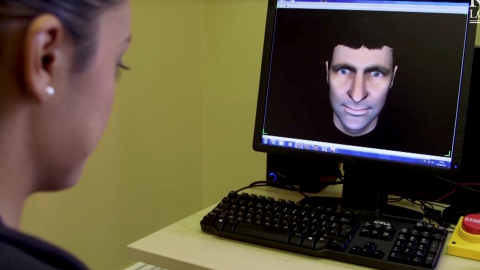How Avatar Therapy Helps People Confront the Angry Voices in Their Heads

Patients with schizophrenia often experience verbal auditory hallucinations – about 65% of them hear voices in their heads. These voices are generally angry, negative and often downright hostile. And while some are helped by current therapies, a sizable portion of the patients do not get enough relief with treatment. To help these patients, a groundbreaking therapy was devised by UK researchers that has patients creating digital avatars to serve as visual representations of the voices in their heads.
Audio Visual Assisted Therapy Aid for Refractory or AVATAR therapy helps a patient create the voice known as the “persecutor”, matching the pitch and tone of the voice in their head. As a patient has dialogue with this avatar, controlled by a therapist, he or she is able to overcome the domination of the voice. This happens as the therapist makes the avatar start to gradually relinquish control back to the patient.
“You’re rubbish. You’re rubbish. You’re a waste of space,” were the kinds of phrases the avatar would say to the patient. But the patient would be encouraged to be more resolute in any dealings with the avatar, telling them to “go away”. The doctor-controlled avatar would in turn become less aggressive and eventually praise the patient.
The approach was originally pilot-tested in studies between 2009 and 2011, while a recent study recreated the results in a more precise trial with a larger sample of 75 patients. 83% of the patients in the new study had their audio hallucinations reduced within 12 weeks of therapy.
Find out more about how AVATAR therapy worked in this video:
The study’s lead author Tom K J Craig, professor at King’s College London, said the researchers were surprised by the results.
“Most dramatic were the people for whom voices stopped entirely,” Craig told to MD Magazine. “Although Julian Leff had found this in his first pilot work, we did not really expect to see it repeated in our larger [powered, randomized] controlled study. While that was the most striking outcome, the wider reductions in frequency and severity of voices reported by many people was also striking.”
Craig pointed out that most significantly, the study showed the importance of transitioning the power from persecutor to patient.
The researchers are looking to conduct wider studies in the next few years, hoping to eventually have AVATAR therapy instituted across clinics and cultures.
You can read the new study here, in The Lancet.





